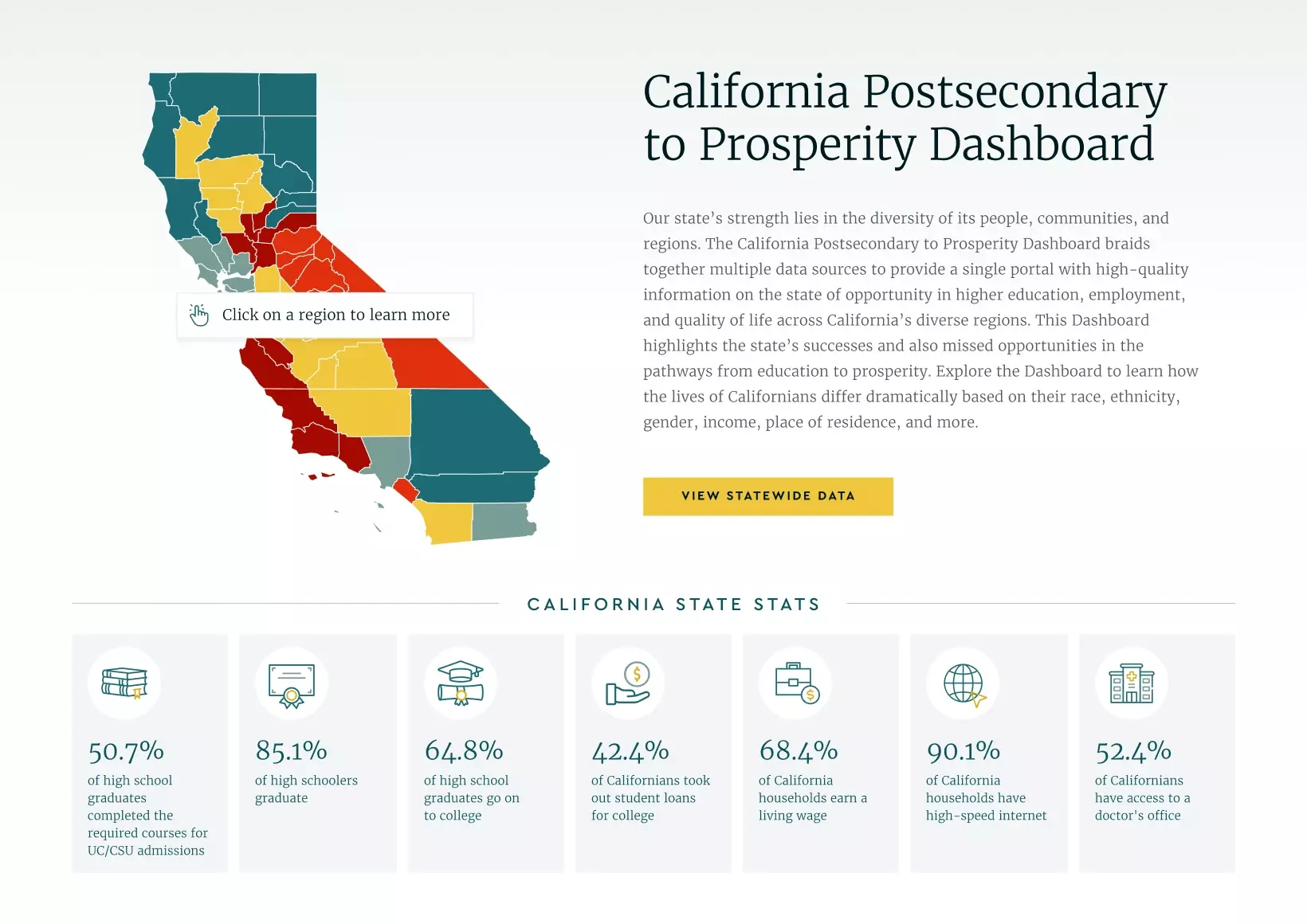Our state’s strength lies in the diversity of its people, communities, and regions.
The California Postsecondary to Prosperity Dashboard braids together multiple data sources to provide a single portal with high-quality information on the state of opportunity in higher education, employment, and quality of life across California’s diverse regions. This Dashboard highlights the state’s successes and also broken opportunities in the pathways from education to prosperity. Explore the Dashboard to learn how the lives of Californians differ dramatically based on their race, ethnicity, gender, income, place of residence, and more.
Explore California statewide data
Explore all metrics across each region, like educational attainment, college access, enrollment rates, retention rates, racial diversity, broadband access, college degree breakdown, workforce opportunities, student loan data, access to community services, and more.
Our map features all counties in California, including Alameda, Alpine, Amador, Butte, Calaveras, Colusa, Contra Costa, Del Norte, El Dorado, Fresno, Glenn, Humboldt, Imperial, Inyo, Kern, Kings, Lake, Lassen, Los Angeles, Madera, Marin, Mariposa, Mendocino, Merced, Modoc, Mono, Monterey, Napa, Nevada, Orange, Placer, Plumas, Riverside, Sacramento, San Benito, San Bernardino, San Diego, San Francisco, San Joaquin, San Luis Obispo, San Mateo, Santa Barbara, Santa Clara, Santa Cruz, Shasta, Sierra, Siskiyou, Solano, Sonoma, Stanislaus, Sutter, Tehama, Trinity, Tulare, Tuolumne, Ventura, Yolo, and Yuba.

